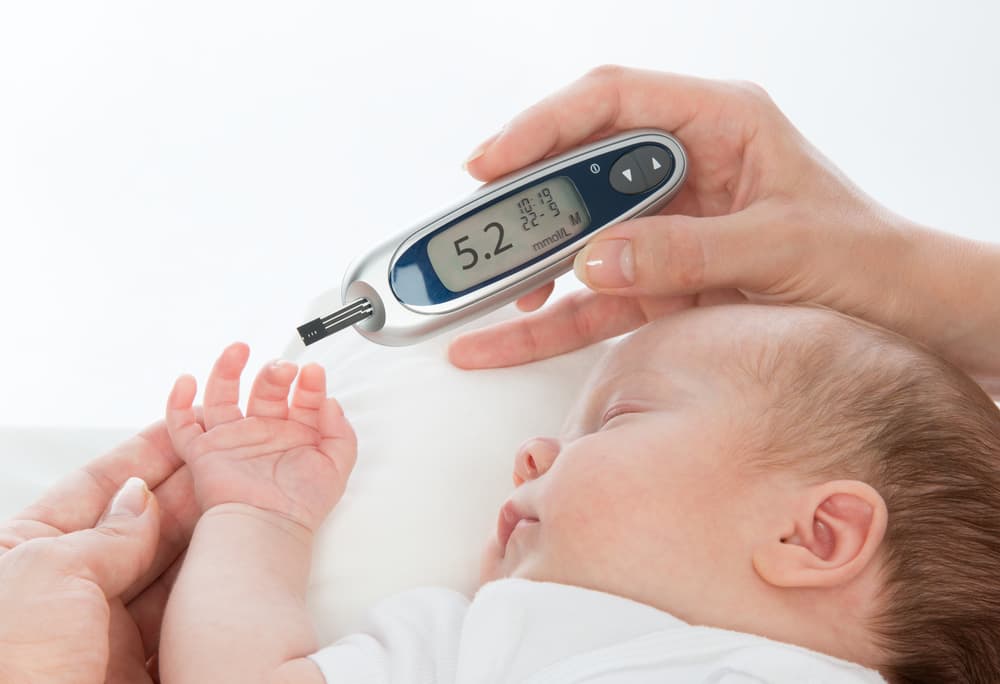Contents:
- Medical Video: Kids' Health & Pediatrics : Warning Signs of Diabetes in Children
- At what age does diabetes in infants appear?
- Symptoms of diabetes in infants
- Treatment of diabetes in infants
Medical Video: Kids' Health & Pediatrics : Warning Signs of Diabetes in Children
Diabetes or diabetes may have been known as an adult disease. But make no mistake, it turns out that diabetes can also occur in young children even in infants.
Diabetes that has been suffered since a baby can develop for life. So, proper care is needed so that diabetics stay healthy and can move normally.
To find out if your baby has diabetes or not, you need to know the signs of diabetes in infants. Anything?
At what age does diabetes in infants appear?
Diabetes is a chronic disease that affects the body's ability to absorb blood sugar and use it as energy. People with diabetes, are not able to use insulin properly, so that blood sugar builds up in the body.
Not only in adults, diabetes can also occur in infants. Diabetes in infants can last only temporarily (called transient neonatal diabetes mellitus (TNDM) type 1) and there is also a persistent lasting life (called permanent neonatal diabetes mellitus (PNDM)).
TNDM can occur since the baby is born (the first week after birth) and usually the symptoms of TNDM can disappear gradually between the ages of 3 months to 18 months. However, this diabetes can reappear, especially in childhood or during adolescence, and develop into permanent diabetes mellitus. Whereas, PNDM usually first appears in the first 6 months of life and continues for a lifetime.
Symptoms of diabetes in infants
So that babies with diabetes quickly get the right treatment, you as a parent certainly need to know what signs of diabetes experienced by babies. Signs of diabetes in infants are:
- Babies have experienced growth delay since they were still in the womb
- Babies experience hyperglycemia (high blood sugar level)
- Babies urinate more often and lose a lot of body fluids and experience dehydration. In addition, baby's urine odor may resemble a fruit's aroma.
- Babies are unable to gain weight or the baby's weight continues to decrease. Although babies may have eaten a lot, but the baby's weight is still difficult to increase.
- Baby gag without apparent reason
- Babies look tired and weak due to lack of energy
- Babies experience delays in growth and development
According to Genetic Home Reference, babies with TNDM can also experience abnormal organ development, such as the brain, heart, or kidney, and can also experience muscle weakness. Whereas, babies with PNDM usually have pancreas that is underdeveloped.
If your baby's weight continues to decline and it is difficult to rise, you should take the baby to the doctor immediately. You should suspect babies have diabetes. The doctor will check the baby's blood sugar level. If your baby's blood sugar level is 200 mg / dL or higher, your baby may have diabetes. The doctor may conduct further laboratory examinations to confirm it.
Treatment of diabetes in infants
Babies with diabetes need special care that aims to keep their blood sugar levels under control. Uncontrolled blood sugar for a long time can cause diabetes in infants to get worse and can even lead to diabetes complications. This requires lifelong care.
You as a parent must pay attention to the baby's intake until he gets bigger. Food intake can greatly affect blood sugar levels, so food intake must be controlled. Avoid foods that contain high levels of sugar to give to babies, such as sweet foods and drinks.
We recommend using a low-calorie sweetener and containing chromium minerals to add to baby food or drinks. Mineral chromium can improve the function of the hormone insulin, so that blood sugar levels can be more controlled.
If the doctor gives medication, like insulin, you should use the drug according to the rules. Do not forget or pass from the time the drug should be given. Medications given by doctors are very helpful in controlling blood sugar levels.












